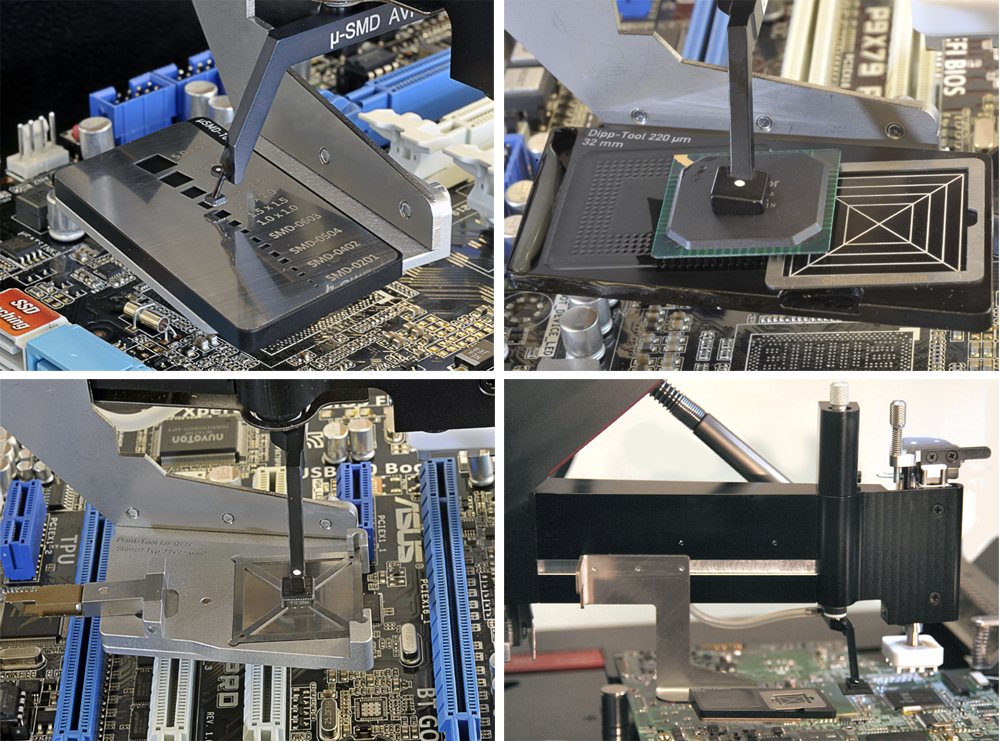Over recent years, a lot of investment has gone into improving processes to increase efficiency and quality. It is not surprising that this has also led to demands for greater reliability and repeatability in rework. MARTIN has recognized this and expanded the capabilities of the EXPERT-10.6 rework systems by developing a new process shuttle for flux dipping, solder paste printing of QFN components,and for handling the smallest SMDs.
The new process shuttle is quickly and easily installed on the existing Auto-Vision-Placer (AVP) – Illustr 1. A transport slide holds the shuttle tools which feed diverse components into the rework process in a controlled manner. The modules are easily changed out without the need for any additional calibrations.
For the quick and simple installation of the new APP Tools the established Auto-Vision-Placer (AVP) is already perfectly prepared (Illustr 1). A transport slide accepts the APP Tools and optimally feeds diverse components into the rework process in a controlled manner. Changing modules can be carried out quickly and simply without the need for additional calibrations.
The smallest components are placed into the µSMD Tool aside the rework system, possibly with the aid of a magnifier. This saves valuable processing time. Illustr 2 shows a µBGA being picked up.
The Dipping module (Illustr 3) allows solder balls on the underside of a BGA to be coated with a defined amount of flux. APP Tools with different depths are available for specific ball sizes.
Printing solder paste onto a QFN and immediately placing it on a PCB is the task of the Printer Tool (Illustr 4). Handling the printed SMD requires only a few simple steps, which results in maximum rework process reliability. Printing stencils are easily changed, resulting in a streamlined QFN rework process.
The process shuttle tools were designed to easily integrate with the Expert 10.6 family. All individual elements of the processes can be assimilated into existing rework programs quickly and without significant effort. APP Tools do not require any software programming, resulting in stability and reliability of even the most complex processes.

